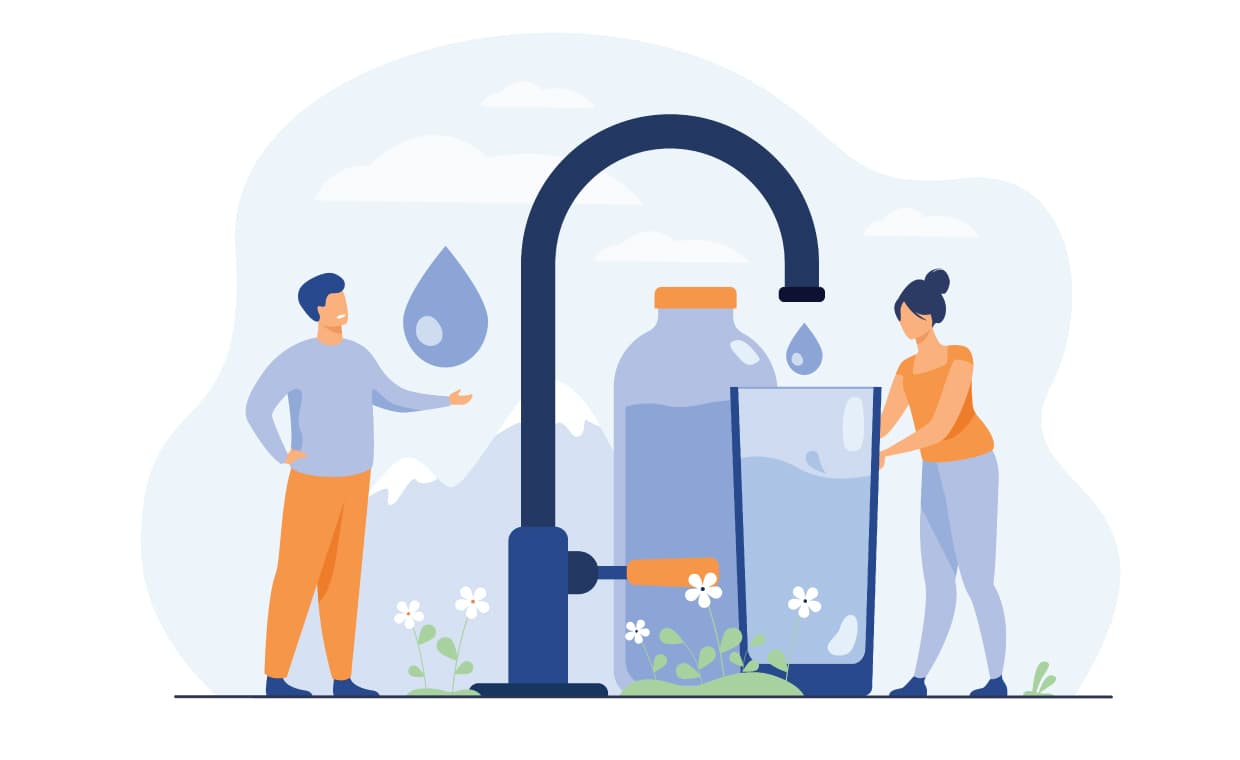
Ensuring access to clean and safe drinking water is vital for our health and well-being. While municipal water supplies undergo regular testing, concerns may arise about the quality of water reaching our homes. The good news is that learning how to test water quality at home has become increasingly accessible, empowering us to take control of our water safety. In this comprehensive guide, we’ll delve into the importance of water quality testing and provide you with a step-by-step approach to conduct your own tests effectively.
Water Quality Across the United States

Water quality can vary significantly across different states in the US due to factors like geology, climate, and industrial activities. it’s important to understand that other states also have specific challenges.
- Midwest: Agricultural runoff is a common concern in many Midwestern states, potentially leading to nitrate contamination in drinking water. Regular testing for nitrates is crucial, especially for those relying on private wells.
- Northeast: Older infrastructure in some Northeastern states can increase the risk of lead leaching into water supplies. Homeowners in these regions may benefit from testing for lead and considering lead-removal filtration options.
- Southwest: Drought-prone areas in the Southwest may face challenges related to water scarcity and salinity. Testing for total dissolved solids (TDS) can help monitor water quality in these regions.
- Pacific Northwest: While generally blessed with abundant rainfall, the Pacific Northwest may experience issues related to stormwater runoff and industrial pollution in certain areas.
Regardless of your location, testing water quality at home is a proactive step towards ensuring the safety of your drinking water.
It’s also advisable to consult your state’s environmental protection agency or health department for additional information on local water quality concerns and recommended testing protocols. If you require further assistance or have specific concerns, consider reaching out to professional water treatment engineering services in your area. Reputable companies in Jacksonville, Orlando, and other cities throughout Florida can provide expert guidance and tailored solutions to address your unique water quality needs.
Why Should You Test Your Water Quality at Home?

The importance of water quality testing cannot be overstated. Even if your water looks and tastes fine, it may harbor contaminants invisible to the naked eye. These contaminants can have adverse effects on your health, ranging from mild gastrointestinal issues to serious long-term health problems.
By regularly testing water quality at home, you can identify potential issues early on and take necessary steps to protect yourself and your family.
Step-by-Step Guide to Test Water Quality at Home
Now that you understand the importance of testing your water, let’s dive into the practical steps involved. It’s time to roll up your sleeves and take control of your water quality.
01. Identify Your Concerns
Before you start testing, consider the specific aspects of your water quality you’d like to assess. Common concerns include:
- Hardness: Hard water can leave residue on fixtures, cause dry skin and hair, and affect the efficiency of appliances. A water quality test for hard water can determine the level of hardness in your water.
- pH Levels: The pH level indicates the acidity or alkalinity of your water. Maintaining a balanced pH is crucial for preventing pipe corrosion and ensuring optimal taste.
- Chlorine and Chloramines: While chlorine and chloramines are used to disinfect water, excessive levels can affect taste and odor.
- Bacteria and Nitrates: The presence of bacteria or nitrates can indicate contamination from sewage or fertilizers, posing a serious health risk.
- Lead and Other Heavy Metals: Lead and other heavy metals can leach into water from old pipes and plumbing fixtures. Exposure to these metals can have severe health consequences, especially for children.
02. Choose the Right Test Kits
Various home water test kits are available, catering to different needs and budgets.
- Test Strips: These are quick and easy to use, providing instant results for basic parameters like pH, chlorine, and hardness.
- Color Disk Kits: These kits offer a more precise measurement for specific contaminants, such as nitrates and lead.
- Digital Test Meters: These offer the highest accuracy and convenience, allowing you to test multiple parameters with a single device.
03. Collect Your Water Sample
Follow the instructions provided with your chosen test kit to collect a water sample. Ensure the sample is representative of the water you regularly consume. For example, if you’re concerned about lead contamination, collect the sample from the first draw of water in the morning.
04. Conduct the Test
Perform the test according to the kit’s instructions. Pay close attention to any color changes, readings, or reaction times.
05. Interpret the Results
Compare your test results to the acceptable levels specified in the kit or consult online resources for further interpretation.
What to Do if You Find Issues with Your Water Quality

If your test water quality at home reveals any concerns, take immediate action to address them:
- Install a Water Filter: A water filter can remove a wide range of contaminants, including chlorine, lead, and bacteria. Choose a filter certified to address your specific concerns.
- Consider a Whole-House Water Treatment System: If your water has multiple issues, a whole-house system may be a more comprehensive solution.
- Contact a Professional: If you’re unsure about the interpretation of your test results or the best course of action, consult a water quality professional for expert advice.
Expert Solutions for Water Quality Challenges in Jacksonville, Florida
For residents of Jacksonville, Florida, concerned about the quality of their water, seeking professional assistance can provide peace of mind. Pape-Dawson, a leading engineering firm with expertise in water treatment, offers comprehensive solutions to address various water quality concerns in the region.
Their team of experienced engineers can assess your specific needs, conduct thorough testing, and design customized treatment systems to ensure your water is safe and healthy for consumption. Whether you’re dealing with hard water, contamination issues, or require assistance with a whole-house water treatment system, Pape-Dawson’s expertise, combined with learning how to test water quality at home, can help you achieve optimal water quality in your home.
Also Read: The Importance of Water Quality in and Around Your Home






























